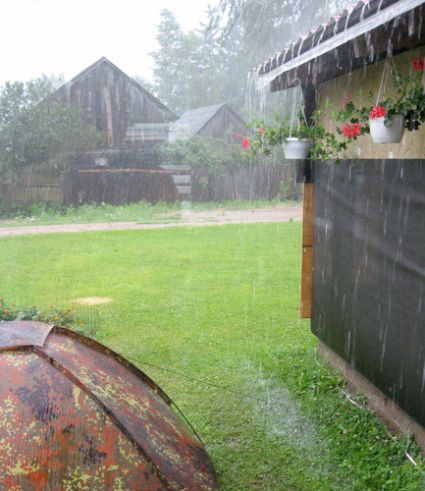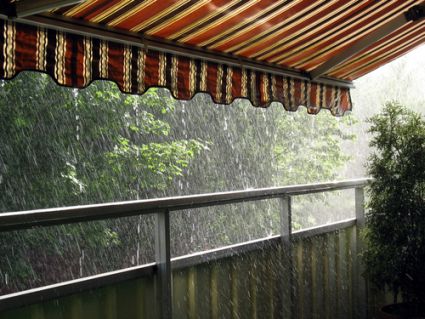Sump Pump Failure
Basement flooding from sump pump failure is a common problem in North America, occurring all too often, especially in areas prone to excess groundwater. The results are costly: complicated clean up projects, potential structural damage to your home, and even health problems from mold growth.

Unfortunately, the same storms that saturate the ground near your home sometimes also cause power outages that prevent your sump pump from activating.
The trend in recent decades toward nicely finished basements has raised the stakes considerably, since basement floods can now destroy expensive entertainment rooms, office equipment, and flooring. Homeowners with active sump pits often feel like they are being held ransom by their sump pumps, unable to truly enjoy vacations or travel without worrying that their pump will fail.
Unfortunately, this worry is valid, since the causes of sump pump failure make a seemingly endless list:
- The pump motor could burn out from overuse.
- A clog could occur. Mud or debris can cause the pump to jam, or the water intake screen could get blocked.
- Important components, like the impeller, drive shaft, or float switch can break, disabling the pump.
- The float switch could also get stuck or disconnected.
- The waste water discharge pipe can get clogged, impairing the pump's ability to discharge sump water. In the winter, it can also freeze, causing the same effect.
- Seemingly trivial things can also stop the pump from working. It can get unplugged by accident or be rendered inoperable by a tripped circuit breaker or blown fuse.
- Finally, power outages are an extremely common cause of sump pump failure. They can create especially extensive water damage, since power outages tend to occur in conjunction with a storm that is actively working to fill your basement with water.
Of course when a sump pump does fail, the resulting experience can be devastating. Not only can expensive finished basements be destroyed, costing tens of thousands of dollars to repair, but irreplaceable personal property and heirlooms can also be ruined. To make matters worse, insurance companies sometimes restrict their coverage of water damage from groundwater, or apply higher deductibles in these situations, so homeowners often find themselves stuck with enormous repair bills.
Water Driven Sump Pumps

Homeowners with active sump pits often feel like they are being held ransom by their sump pumps, unable to truly enjoy vacations or travel without worrying that their pump will fail during a heavy rainstorm.
Battery backup sump pumps are a helpful way to guard your home against sump pump failure and are probably the best option for homes with a well-water source. However, for houses connected to city water, a water-driven sump pump is usually a better way to back up your main sump pump.
Water-driven sump pumps require no battery or electricity at all. Instead, they use a home's water pressure from incoming city water to create suction, which pumps water out of the sump pit. These pumps can run indefinitely, as long as there is city water pressure coming to your house, so you no longer have to worry about a power outage lasting longer than your battery powered pump's battery life.
When your main sump pump fails, the water-driven back up pump begins pumping. Incoming city water flow generates suction, via the venturi principle, allowing the backup pump to empty the sump pit. Both the city water and ground water from the sump pit are ejected outside the house. Like any ground or city water deposited into a yard (by a lawn sprinkler for instance) or storm drain, this water is recycled by nature. It does not add to the burden of a city's sewer system or add contaminants to the ecosystem.
As water-driven sump pumps use no electricity, they obviously do not impact a home's electric bill. The only operating cost is the city water used to run the pump, which of course is miniscule compared to the cost of cleaning up a water-damaged basement. Additionally, since they do not use batteries, water powered pumps avoid any pitfalls relating to the safe disposal of old batteries.
Backflow Prevention
One important consideration when choosing a water-driven backup sump pump is backflow prevention. Because these pumps use city water to create their suction power, it is imperative to ensure that this municipal water source is protected from sump pit water. Sump water must never be allowed to flow backwards into the clean city water source.
Plumbing industry professionals can tell you countless stories of homeowners who get into trouble with their town's plumbing inspectors because of insufficient backflow prevention for their water powered sump pumps. Often they are left with only two solutions: (a) buy an expensive, separate backflow prevention device that requires costly annual inspections and maintenance, or (b) remove the pump.
Here at Water Damage Defense we sell water powered sump pumps specifically designed to solve this backflow problem. Several of the Basepump water-driven pumps we carry come equipped with "Vacuum Breaker" backflow preventers (RB750-AVB, HB1000-AVB, and CB1500-AVB). This saves homeowners the hassle and cost of buying and maintaining a separate backflow device. To learn more, click on the product links above or our Basepump fact page. Also, see our article on water-powered sump pump backflow prevention for further reading on this subject.
Note that the information about water powered sump pumps in this article applies to the Basepump brand of pumps that we carry. Of course, other brands may differ in their capabilities, so this article may not apply to them.
--------------
This article is intended for informational purposes. Before beginning any construction project at your home, please ensure that you take necessary safety precautions and consult construction professionals whenever necessary.
